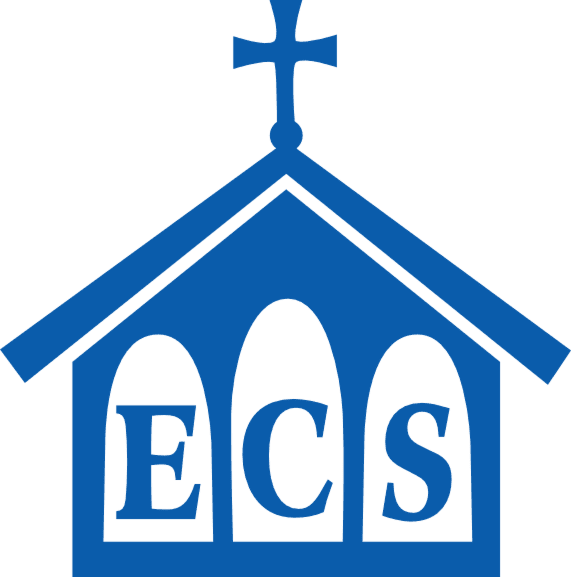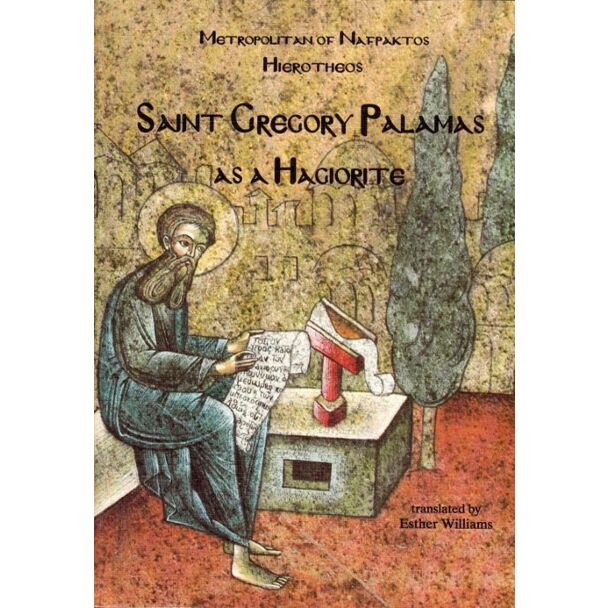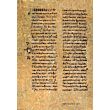Saint Gregory Palamas as a Hagiorite
Metropolitan of Nafpaktos Hierotheos
translated by Esther Williams
translated by Esther Williams
Publication Data: Levadia, Greece: Birth of the Theotokos Monastery, 2000
Format: softcover
Number of Pages: 405
Dimensions (l × w × h): 21.8 cm × 15.1 cm × 2.7 cm
ISBN: 960‒7070‒37‒2
Metropolitan of Nafpaktos Hierotheos
translated by Esther Williams
“Many discerning fathers have discovered that the teaching of St. Gregory Palamas is quite contemporary. Contemporary man, characterised by anthropocentrism and conjecture, should study and listen to the teaching of St. Gregory, defender of the theologians and herald of divine Grace, a man who saw God. St. Gregory is the theologian of the uncreated Light. His teaching is quite timely now, because Barlaamism is alive in many aspects of our life. Hesychasm, or the hesychastic life, which is entirely traditional and forms the backbone of Orthodox life, is being undervalued, not to say opposed. It is true that at many points we are seeing an improvement over former times, but there is still the underlying problem of anti-hesychasm.”
—“Introduction”
CONTENTS
Translator’s note
Preface to the English edition
Introduction
1
The importance of the teaching of St. Gregory Palamas
1. For Orthodoxy
2. For Monasticism
3. For the Holy Mountain
2
On the Holy Mountain
1. His life before he moved to the Holy Mountain
2. His life on the Holy Mountain
3. Hesychastic aspects of his struggles
4. The falling asleep of the saint
3
One who expressed the hesychastic life of the Holy Mountain
1. The Holy Mountain and the Orthodox Church
2. Orthodox hesychia
3. Expression of the hesychastic life
a) His “dispute” with Barlaam
b) His homilies
4
The first settler on the Holy Mountain
1. The reason for writing about St. Peter the Athonite
2. The Holy Mountain and its value
3. The ascetic life of St. Peter
4. The temptations of the devil
5. The end of St. Peter’s life
6. Characterisations of St. Peter
5
Monasticism and monks
1. Monasticism as prophetic, apostolic and a martyr’s life
2. The Holy Mountain at the time of St. Gregory Palamas
3. Monasteries and the monastic life
a) Naming of the places of ascetic exercises
b) Monks and those in the world
c) Two categories of nuns
d) Monks and education
e) Different types and methods of asceticism
f) The purpose of withdrawal
g) The way of monastic life
h) Monks and reading
i) Moving of monks in the world
j) Imitation of the Forerunner
4. Conclusion
6
Fasting, vigil, prayer
1. Fasting
a) Fasting and prayer
b) The scope of fasting
c) The value of fasting
d) Fasting and lack of food
e) Demonic fasting
2. Vigil
a) The holy Fathers on the vigil
b) St. Gregory Palamas and vigil
3. Prayer
a) The views of Nicephoros the Solitary
b) The theological conditions for noetic prayer
c) Common energies of soul and body
d) Prayer by the Christians in the world
4. Conclusion
7
The essence of orthodox monasticism
1. Concern and writing
2. Passions and cure of the tripartite soul
3. Spiritual poverty
4. Blessed grief
5. Conclusions
8
His social teaching, a dimension of the monastic life
1. Zealotism and Zealots
2. The Zealots of Thessaloniki
3. St. Gregory’s stance towards the civil war and the Zealots
4. The ‘Romanity’ of St. Gregory and the anti-‘Romanity’ of the anti-hesychasts
5. The social teaching of St. Gregory
6. Sociality and monasticism
9
The Keeper of the Holy Mountain
1. The Hagiorites and the Theotokos
2. Personal relationship of St. Gregory with the Theotokos
3. St. Gregory’s teaching about the Theotokos
a) The Birth of the Most holy Theotokos
b) The Entry of the Theotokos into the Temple
c) The Annunciation of the Theotokos
d) The Theotokos at the resurrection of Christ
e) The Dormition and assumption of the Theotokos
4. Characterisations of the Theotokos
10
The “Hagiorite Tome”
1. Introduction
2. Summary
3. Analysis of the work
a) Essence - energy
b) Uncreated Light
c) Nous and heart
d) Man’s union with God
e) Deification of the body
f) The experienced saints
4. Conclusion
11
The vision of God on the mountain
1. Contemporary Hagiorite witnesses of deification
2. The Transfiguration of Christ
3. The passage on the Transfiguration and interpretative commentaries
Interpretative commentaries
a) Kingdom of God and uncreated Light
b) The three Disciples
c) Transfiguration of Christ and transfiguration of the Disciples
d) The brightness of the clothes
e) Moses and Elijah
f) The word of the Father
g) The path of deification
4. General theological comments
a) The purpose of deification in the Christian life
b) Degrees of the vision of God
c) The ascetic method
5. Conclusions
12
Empirical theology
1. The presuppositions of the theology of St. Gregory
2. Elements from the theology of St. Gregory Palamas
a) The two wisdoms
b) Truth and the Church
c) The cure of the soul
d) The interpretation of the Scriptures
e) The knowledge of God
13
The fourth Hierarch and Theologian
1. St. Gregory and the three Hierarchs
2. The four Hierarchs and theologians in the tradition of the Church
In place of an epilogue
Glossary
Bibliography
Format: softcover
Number of Pages: 405
Dimensions (l × w × h): 21.8 cm × 15.1 cm × 2.7 cm
ISBN: 960‒7070‒37‒2
Metropolitan of Nafpaktos Hierotheos
translated by Esther Williams
“Many discerning fathers have discovered that the teaching of St. Gregory Palamas is quite contemporary. Contemporary man, characterised by anthropocentrism and conjecture, should study and listen to the teaching of St. Gregory, defender of the theologians and herald of divine Grace, a man who saw God. St. Gregory is the theologian of the uncreated Light. His teaching is quite timely now, because Barlaamism is alive in many aspects of our life. Hesychasm, or the hesychastic life, which is entirely traditional and forms the backbone of Orthodox life, is being undervalued, not to say opposed. It is true that at many points we are seeing an improvement over former times, but there is still the underlying problem of anti-hesychasm.”
—“Introduction”
CONTENTS
Translator’s note
Preface to the English edition
Introduction
1
The importance of the teaching of St. Gregory Palamas
1. For Orthodoxy
2. For Monasticism
3. For the Holy Mountain
2
On the Holy Mountain
1. His life before he moved to the Holy Mountain
2. His life on the Holy Mountain
3. Hesychastic aspects of his struggles
4. The falling asleep of the saint
3
One who expressed the hesychastic life of the Holy Mountain
1. The Holy Mountain and the Orthodox Church
2. Orthodox hesychia
3. Expression of the hesychastic life
a) His “dispute” with Barlaam
b) His homilies
4
The first settler on the Holy Mountain
1. The reason for writing about St. Peter the Athonite
2. The Holy Mountain and its value
3. The ascetic life of St. Peter
4. The temptations of the devil
5. The end of St. Peter’s life
6. Characterisations of St. Peter
5
Monasticism and monks
1. Monasticism as prophetic, apostolic and a martyr’s life
2. The Holy Mountain at the time of St. Gregory Palamas
3. Monasteries and the monastic life
a) Naming of the places of ascetic exercises
b) Monks and those in the world
c) Two categories of nuns
d) Monks and education
e) Different types and methods of asceticism
f) The purpose of withdrawal
g) The way of monastic life
h) Monks and reading
i) Moving of monks in the world
j) Imitation of the Forerunner
4. Conclusion
6
Fasting, vigil, prayer
1. Fasting
a) Fasting and prayer
b) The scope of fasting
c) The value of fasting
d) Fasting and lack of food
e) Demonic fasting
2. Vigil
a) The holy Fathers on the vigil
b) St. Gregory Palamas and vigil
3. Prayer
a) The views of Nicephoros the Solitary
b) The theological conditions for noetic prayer
c) Common energies of soul and body
d) Prayer by the Christians in the world
4. Conclusion
7
The essence of orthodox monasticism
1. Concern and writing
2. Passions and cure of the tripartite soul
3. Spiritual poverty
4. Blessed grief
5. Conclusions
8
His social teaching, a dimension of the monastic life
1. Zealotism and Zealots
2. The Zealots of Thessaloniki
3. St. Gregory’s stance towards the civil war and the Zealots
4. The ‘Romanity’ of St. Gregory and the anti-‘Romanity’ of the anti-hesychasts
5. The social teaching of St. Gregory
6. Sociality and monasticism
9
The Keeper of the Holy Mountain
1. The Hagiorites and the Theotokos
2. Personal relationship of St. Gregory with the Theotokos
3. St. Gregory’s teaching about the Theotokos
a) The Birth of the Most holy Theotokos
b) The Entry of the Theotokos into the Temple
c) The Annunciation of the Theotokos
d) The Theotokos at the resurrection of Christ
e) The Dormition and assumption of the Theotokos
4. Characterisations of the Theotokos
10
The “Hagiorite Tome”
1. Introduction
2. Summary
3. Analysis of the work
a) Essence - energy
b) Uncreated Light
c) Nous and heart
d) Man’s union with God
e) Deification of the body
f) The experienced saints
4. Conclusion
11
The vision of God on the mountain
1. Contemporary Hagiorite witnesses of deification
2. The Transfiguration of Christ
3. The passage on the Transfiguration and interpretative commentaries
Interpretative commentaries
a) Kingdom of God and uncreated Light
b) The three Disciples
c) Transfiguration of Christ and transfiguration of the Disciples
d) The brightness of the clothes
e) Moses and Elijah
f) The word of the Father
g) The path of deification
4. General theological comments
a) The purpose of deification in the Christian life
b) Degrees of the vision of God
c) The ascetic method
5. Conclusions
12
Empirical theology
1. The presuppositions of the theology of St. Gregory
2. Elements from the theology of St. Gregory Palamas
a) The two wisdoms
b) Truth and the Church
c) The cure of the soul
d) The interpretation of the Scriptures
e) The knowledge of God
13
The fourth Hierarch and Theologian
1. St. Gregory and the three Hierarchs
2. The four Hierarchs and theologians in the tradition of the Church
In place of an epilogue
Glossary
Bibliography
Write Your Own Review






